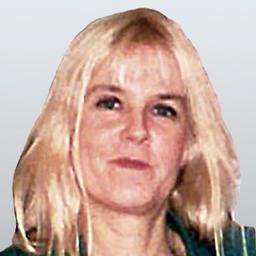This month, mental health and correctional professionals from all over the nation gathered in Chicago to address a problem that many are not aware of. People denied mental health services who end up homeless or incarcerated as criminals. The conference, called “The Cost of Doing Nothing,” sponsored by the Kennedy Forum was held at Chicago’s Palmer House Hilton. The Kennedy Forum was founded to enlist business leaders and government agencies in fully implementing the Mental Health Parity and Addiction Equity Act of 2008, which has been amended by the Affordable Care Act, to guarantee equal access to medical care and help patients understand their rights.
“I have been out to Cook County Jail myself,” Rep. Kennedy told me in a one-on-one interview. “It is the largest mental health facility in the nation.” Chicago’s 10,000-person jail may be the largest in the nation, but “every jail in America” is a de facto mental health facility Rep. Kennedy told me because community mental health support in the U.S., outlined 50 years ago with President Kennedy’s Community Mental Health Act of 1963, “never got implemented.” Patrick Kennedy is the youngest son of Sen. Edward Kennedy and served 16 years as Rhode Island’s Democratic representative in Congress.
“If the nation wanted a good answer to Sandy Hook and Aurora” it would make a commitment to providing mental health care to any American who “suffers a psychotic break,” he said. We are not doing “what we know works.”
There is overwhelming evidence that mental health affects overall health, says Rep. Kennedy and U.S. medicine needs to start doing a “check up from the neck up.” Currently, we have “a two-tier system”--one for health care and one for mental health care, he said, and the latter is “poorly reimbursed and poorly respected within the medical community.”
Others at the conference agreed. We have “under funded and eliminated” community mental health services and people with mental illness are, not surprisingly, ending up in jail and prison said Cook County Sheriff Tom Dart who participated on a panel called Models for Change: Addressing Mental Illness and Addiction in the Justice System.
The number of women with mental health issues is “exploding” in the judicial system said Sheriff Dart with as many as “18 out of 20 women [who are arrested] acutely psychotic.” No one is sure why. Mentally ill people, like the growing wave of disturbed women, have usually been arrested for “misdemeanor 4s” said Dart which means they are not dangerous criminals and probably require mental health services which are currently absent.
Lack of community mental health services, housing and jobs almost ensures that people with mental illness who have been incarcerated will return again and again through a “spinning door” as they get embedded in the system, said panelists who included Dr. Paula Wolff, Director, Illinois Justice Project, Justice Kathryn Zenoff, Appellate Judge, Second District, State of Illinois, Dr. Fred Osher, Director of Health Services and Systems Policy, Council of State Governments Justice Center and Pamela Rodriguez, Executive Director, TASC (Treatment Alternatives for Safe Communities).
A chilling case in point were newly released people at Cook County Jail in Chicago who simply milled around the entrance at 26th and California because they had nowhere to go, observed Sheriff Dart; it was the operative “discharge plan” until some follow-up services were implemented.
Another indictment of the under funded system are patients who tell the sheriff they don’t want to leave jail because it is the “best treatment they have ever had,” said Dart. People who are in jail and do not have mental illness usually want to talk about their case and the fact that they are innocent, he said. People who have mental illness, conversely, often beg for help when they are released such as in housing. They are literally “craving a place to live,” said Sheriff Dart.
“Insurance companies have regularly and routinely denied benefits for people with mental illness” whether for severe psychiatric disorders or for people who have alcoholism, addictions, eating disorders and panic attacks Rep. Kennedy told me. Mental diseases are just as serious as physical diseases and deserve the same coverage, he said.






